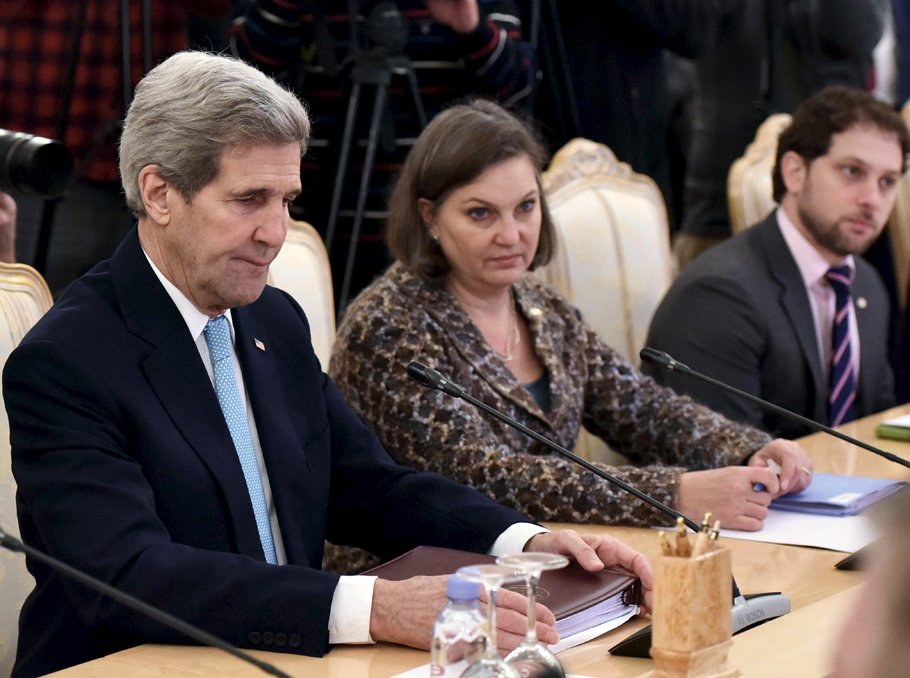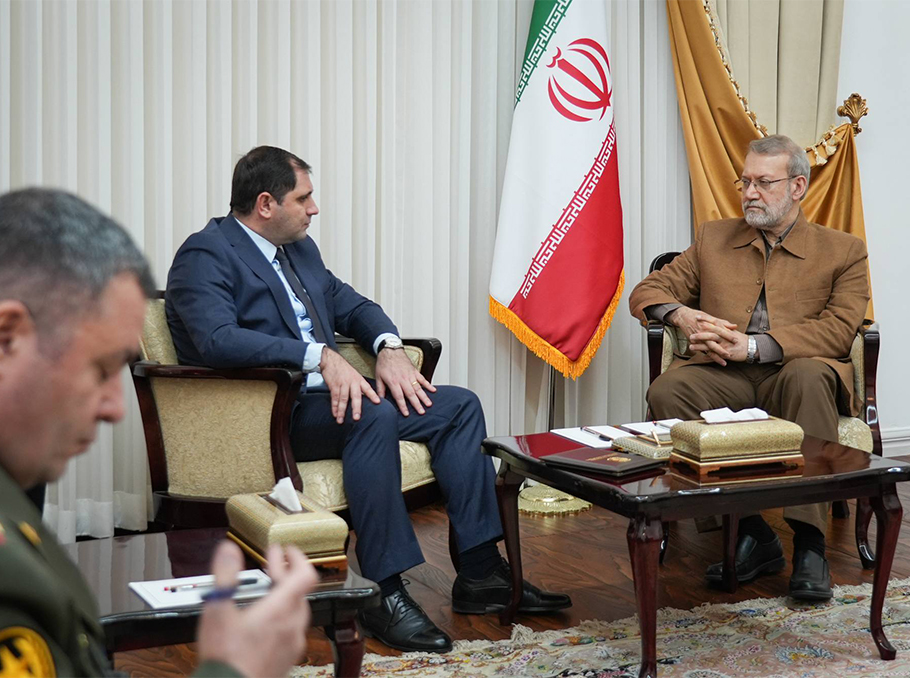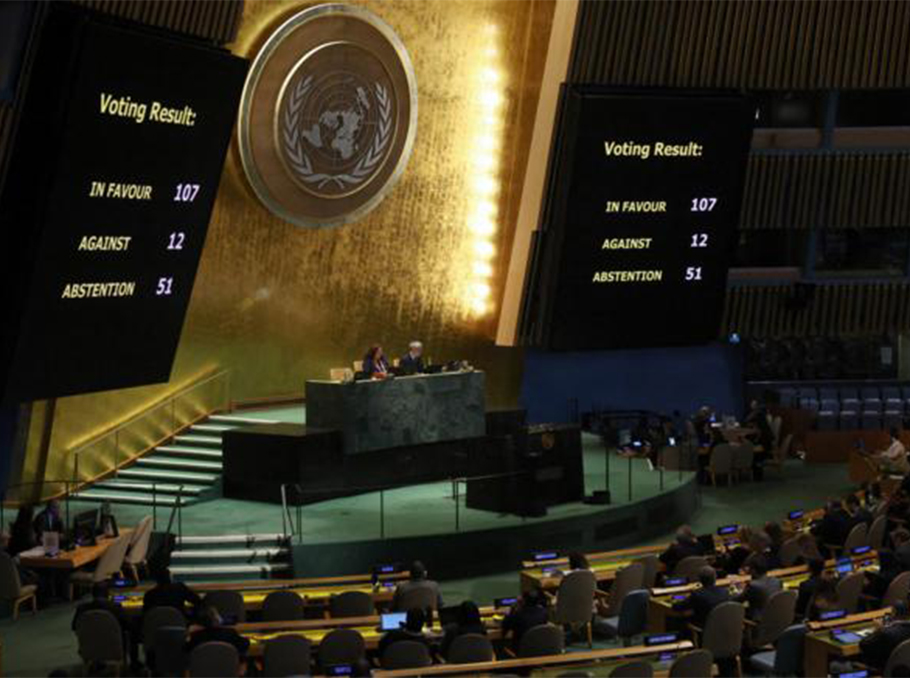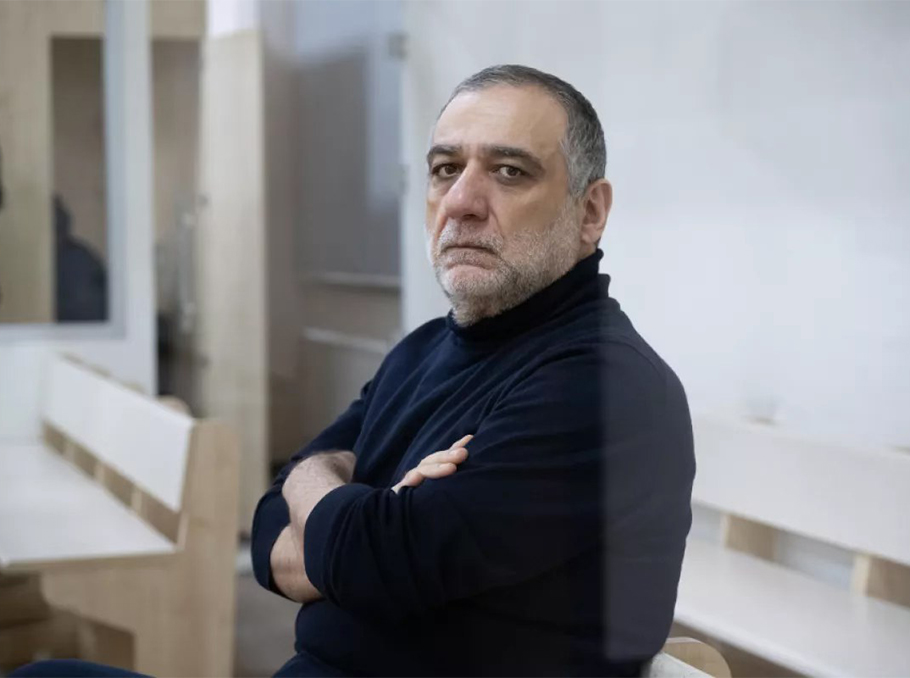Yerevan /Mediamax/. U.S. senior officials believe that in fact, Armenia and Azerbaijan are not as far apart from the settlement of the NK conflict as it may seem.
U.S. officials held a briefing for journalists in Vienna ahead of the meeting between the Presidents of Armenia and Azerbaijan with participation of Russian Foreign Minister, the U.S. Secretary of State and Minister of State for European Affairs of France on May 16.
According to the tradition upheld in the State Department, the officials are not named in the briefing transcript, but are identified as “Senior State Department Official One” and “Senior State Department Official Two”. We assume that the officials were the U.S. Assistant Secretary of State for European and Eurasian Affairs Victoria Nuland and American OSCE Minsk Group Co-Chair James Warlick.
We present extracts from the background briefing.
***
On negotiations
We want to see a negotiating process underway. We would like to see both sides commit themselves to meeting in order to negotiate a comprehensive settlement of the conflict. Both sides have agreed that the status quo is not sustainable, that there does need to be a process in place and underway that can lead to a settlement. So Secretary Kerry is going to press the presidents to come together in the near future to work towards that comprehensive settlement.
On the military actions in the beginning of April
It’s hard to know why and how it started. It’s clear that – it’s been clear over the last year that each side is testing the other’s defenses. One of the most troubling things that’s happened along the line of contact is the introduction of heavy weapons.
On cooperation with Russia
Well, this is an issue where we see eye to eye with the Russians. We have no differences of opinion. We’re looking at two things, really: reducing the violence, which means respecting the existing ceasefire; and immediate negotiations on a comprehensive settlement. And the Russians share both of those goals.
On the principles of settlement
Principles and elements that are the basis for negotiating a comprehensive settlement. And these elements and principles have been on the table for a long time. So we’d like to have a discussion tonight that – where both sides will reiterate their support for these elements and principles and identify them as the basis for moving forward on a comprehensive settlement.
There are Azerbaijanis who believe that this conflict will be settled only through the barrel of a gun. But we don’t believe that either of the presidents supports that. They want to have a negotiated settlement. They’ve come close in the past. They’re not that far apart on what a settlement would look like. So we’ve been trying to bring them together – and tonight is no exception – so that they can narrow those differences. And in this case we’d like to have a sustained negotiating process – a process that can lead to a comprehensive settlement. And by “comprehensive,” we mean it takes all of the issues into account.
On the bottle of scotch
What’s remarkable is that they can talk to each other. What we’ve done with them in the past – and I don’t think we’ll have the opportunity tonight; we’re using a different format – is that we’ve allowed them as much time as they want one on one. We put a bottle of scotch on the table and allow them to talk through the issues, and what we’ve learned is they do talk through the issues.
On the status of Nagorno-Karabakh
The presidents agree that there needs to be an expression of the will of the population of Nagorno-Karabakh at some time to decide Nagorno-Karabakh’s future. Of course, the Armenians would like a date set and would like to have that referendum done as soon as possible. Our answer to that is that’s not the only issue in play, and when we talk about a comprehensive settlement, we need to talk about all of these elements and principles.
On the renewed monitoring mission of the OSCE
We would like to see a more robust mission, as well as other confidence building measures that could help to reduce the violence.
Well, right now there are only six monitors. And that allows monitoring missions to take place two or three times a month.
That’s just not sufficient. We’d like to see more monitoring missions in more geographic areas. And if the sides would agree to that, that could be very helpful.
They [Azerbaijan] have been opposed to additional monitors. They opposed any confidence-building measures that they believe perpetuates the status quo. That said, we want to take up these confidence-building and humanitarian measures tonight and see if Azerbaijan can agree to some of them.
On the results of the April war
Azerbaijanis did take some territory that at least the Azerbaijanis believe is tactically important for them.
You’ll hear different stories from each of the sides. The Azerbaijanis have declared victory, and consider this a significant military victory. Armenians don’t see it that way. They will tell you this is simply hundreds of meters, where Azerbaijan paid a very high price for land that’s not particularly important.
On the perspectives of the conflict settlement
This is a solvable conflict. There’s some out there that simply have to be managed. This one can be solved, and it takes the political will of the two presidents to reach an agreement. But we concede where the settlement will end up.





















